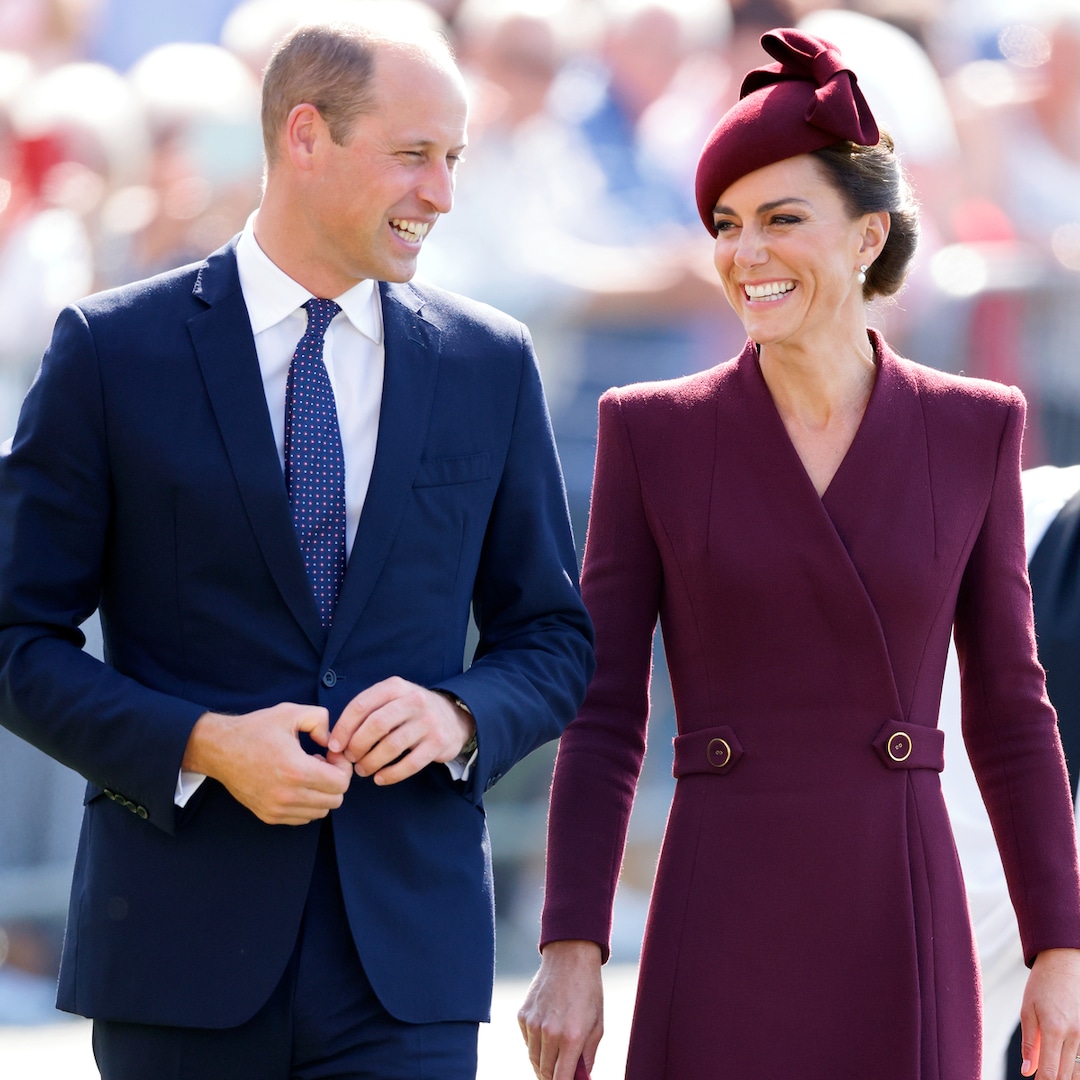Jenny Powell gave an important health update one month on from her robotic hysterectomy on Wednesday.
The TV presenter, 56, underwent the procedure to subside her severe menopause symptoms, which she has been incredibly open about.
Now she has reflected on her recovery and shared images of her scars healing but also shared a warning for other women to 'take the healing process seriously'.
She penned: 'What a month four weeks on from my robotic hysterectomy and healing well. I have been overwhelmed, truly, by the response to my posts and updates.
'I'm planning on an event and building a community on here but also keeping in touch with as many of you as I can. So just to say, healing and slowing down to do so is hard work in itself.
Jenny Powell gave an important health update one month on from her robotic hysterectomy on Wednesday
She has reflected on her recovery and shared images of her scars healing but also shared a warning for other women to 'take the healing process seriously'
'I've found it very hard to ignore the chores of every day life in work, at home and play. So take the healing process seriously or it will bite you on the bum later on down the line.
'Make sure you have a plan in place and get the right advice post op regarding your hormones /HRT /self care and accept help whenever you a get it... (thank you, Mum, my girls and everyone at work!) so hystersisters, more to come as we are on the road to recovery... we've got this!!'
She shared snaps of her scars at each week for the four weeks and also posted a series of lovely messages from other women who had been through the same thing.
The high-tech remote-controlled machines were deployed by NHS Trusts to clear the backlog of women who missed out on vital operations during the Covid pandemic.
While the devices cost just under £2 million each, they slash the time it takes to perform the delicate surgery, and as they also work with pinpoint accuracy it means patients recover faster.
Called Hominis, this surgical system is operated by a human controller who maneuvers the robotic arms while watching the procedure happening on a screen in real time.
The robot features shoulder, elbow and wrist joints to provide human human level dexterity and 360-degree articulation.
An additional arm guides a laparoscopic video camera through a small, separate incision, to help visualize the internal procedure.
The TV presenter, 56, underwent the procedure to subside her severe menopause symptoms, which she has been incredibly open about
She penned: 'What a month four weeks on from my robotic hysterectomy and healing well. I have been overwhelmed, truly, by the response to my posts and updates'
She shared snaps of her scars at each week for the four weeks and also posted a series of lovely messages from other women who had been through the same thing
She had been contacted by many women in her Instagram direct messages who were having the same operation
Hominis enters through the vagina to perform the hysterectomy and then wraps its arms around the uterus to perform the operation.
Last month Jenny used the two week milestone after her procedure to give an update, telling her followers: 'It is two weeks to the day that I had my hysterectomy.
'I've had thousands of people messaging and I just want to clear one thing up - I had a robotic hysterectomy so I had a surgeon who was controlling a robot's arms to do the whole operation.
'So it was less invasive but also the recovery time is a bit quicker.'
Issuing a warning to others in recovery she then added: 'Recovery wise I have been doing a few things here and there and I was absolutely floored yesterday because I did too much - so don't over do it - it's not worth it.'
Continuing her video as she displayed her scars: 'The scars are looking good but there's a lot of healing going on on the inside and that's the thing so small steps.'
She also shared an image of her stomach and penned in the caption: '2 weeks post op: No need for painkillers (just itchy from healing). Can lie on my side to sleep at last.
'Sticking to a high fibre diet. Readjusting my HRT with my consultant. Going outdoors/ walking/ rehab. Playing the healing frequency 285 on Spotify AND REST.'
Soon after undergoing the operation in early October Jenny explained: 'I've suffered for so long with all sorts of symptoms and tried all sorts, but yeah it's time, so hence the hysterectomy.
'Because I'm menopausal of course things are different it's not like this is been brought on early.
'But I'm just wondering if they'll be any connection between it and my emotions. So it will be interesting. I'm just about to put my fancy gown on so come back later.'
Jenny previously revealed she was forced into hospital after severe menopause symptoms left her struggling to 'get out of bed every day.'
The presenter said she was forced to undergo an iron infusion after suffering from anaemia due to severe blood loss.
She is seen just a few days after her surgery
Soon after undergoing the operation last month, Jenny explained: 'I've suffered for so long with all sorts of symptoms and tried all sorts, but yeah it's time, so hence the hysterectomy'
The high-tech remote-controlled machines were deployed by NHS Trusts to clear the backlog of women who missed out on vital operations during the Covid pandemic
She told Closer magazine: 'The menopause affected me mentally and I didn't feel like me. My periods were awful, I'd have to change about five times a day and I lost that much blood that I became anaemic. I was really tired and depressed.
'I'd struggle to get out of bed and I couldn't wait to go back to bed at night.'
Jenny spoke candidly about her experience with perimenopause - the time before a woman's periods stop - and said she didn't address her symptoms straight away and her condition became worse because she'd left it so long.
It meant she ended up needing treatment in hospital, adding: 'I left it too long to get it sorted, so in the end I had to have iron infusions in hospital.'
What is a hysterectomy?
A hysterectomy is a surgical procedure to remove a woman's uterus.
There are three kinds:
- PARTIAL HYSTERECTOMY: Removes two-thirds of the uterus.
- TOTAL HYSTERECTOMY: Removes uterus and cervix.
- RADICAL HYSTERECTOMY: Removes uterus, cervix and ovaries.
The operation is most commonly performed on women between the ages of 40 and 49.
More than 20 million American women have had a hysterectomy, according to data from the Centers for Disease Control and Prevention.
As women approach menopause, the odds that they will develop one of several serious uterine health conditions increases. Doctors may recommend a hysterectomy as a treatment for:
- fibroids
- endometriosis
- uterine (endometrial) cancer
- chronic uterine pain or bleeding
- collapsed uterus
In some cases, doctors may suggest a hysterectomy as a preventative measure if a woman has significant warning or early signs of developing one or more of these conditions.
When necessary, surgeons may also remove the ovaries and fallopian tubes, if these have also been damaged or are at serious risk of damage.
The removal of reproductive organs sends a woman's body into menopause, no matter how old she is.
This comes with unpleasant side effects like hot flashes, and many women have to start hormone therapy, taking oestrogen to balance out their own hormones.

 2 hours ago
2
2 hours ago
2




:quality(85):upscale()/2024/11/05/936/n/1922153/cc2bbd68672a8e1588a964.53876938_.webp)
:quality(85):upscale()/2024/08/06/667/n/1922794/4bc1ce8866b23aaf319c84.46755244_.png)

:quality(85):upscale()/2024/10/11/958/n/24155406/e0150f5b6709a009125209.52834453_.jpg)
 English (US) ·
English (US) ·